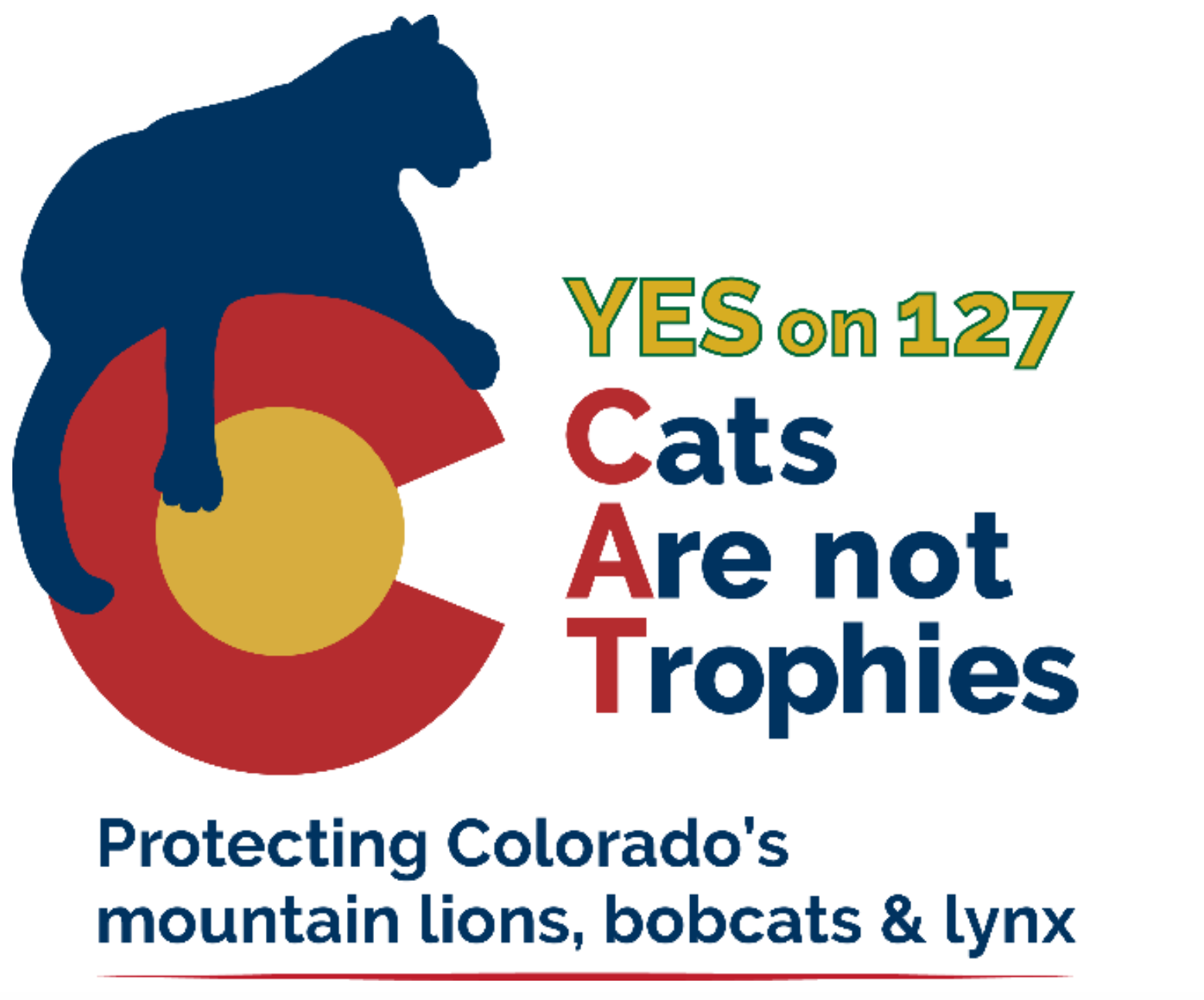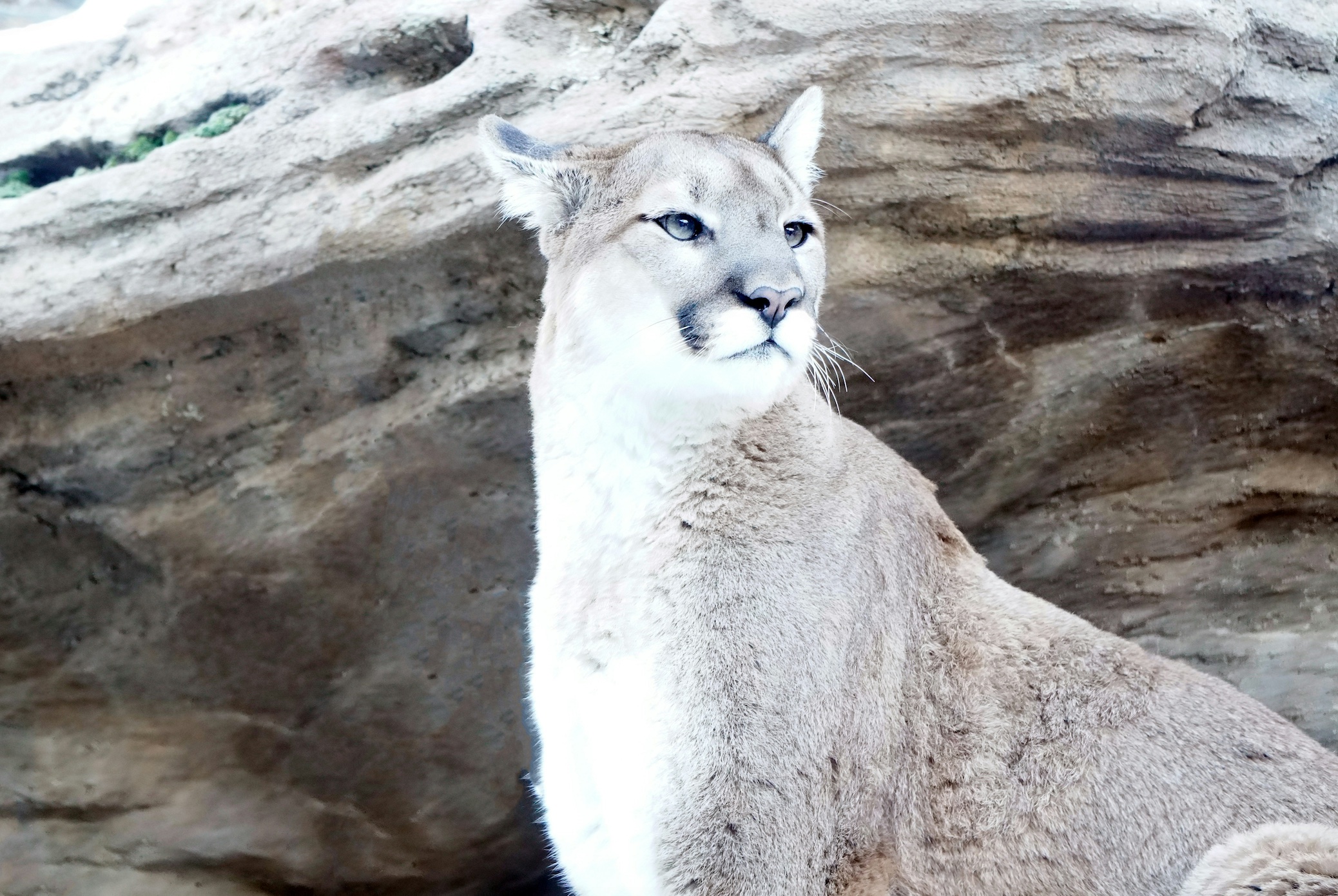California’s 52-years without lion trophy hunting, shows stable populations, not increasing, as live evidence.
(Grand Lake, Colorado) — Colorado mainstream news reporters interviewing wildlife managers show the forthcoming decision on Proposition 127/Cats Aren’t Trophies is squarely centered on whether voters care about the humane treatment of wildlife and principles of fair chase and sportsmanship.
A vetted, national press wire also explains in neutral terms why Prop 127 is specifically about trophy hunting mountain lions and bobcats of Colorado: Mountain Lion, Bobcat Trophy Hunting, Fur Trapping Season Begins in Colorado (einpresswire.com)
Despite shrinking and corporate-owned newsrooms, and seven ballot measures, top Colorado mainstream journalists and outlets are doing careful reporting and sorting hyperbole from science-based evidence, notes Julie Marshall, Colorado’s longtime reporter and editor who recently won first place for both mountain lion editorials and columns by the Colorado Press Association. She recently became communications director for CATs and Animal Wellness Action, one of 100 wildlife conservation organizations endorsing Prop 127. She also worked as a Public Information Officer for Colorado Division of Wildlife.
“Every Colorado voter should value serious-minded journalism that doesn’t revert to sensationalism but instead grounds reporting on science and accepted norms of proper treatment of animals and rules of fair chase,” said Julie Marshall, a 35-year print newsroom veteran with a master’s degree in journalism from University of Colorado Boulder. “There is a scientific consensus that our wild cat populations are self-regulating, and it’s our hope that journalists will continue to sort factual from fictional characterization of wildlife.”
An NPR podcast, KUNC’s in The NOCO, a daily look at the stories important to Coloradans, explored Prop 127, reporting that if Prop 127 passes, lion populations will stabilize, not increase.
A Denver Post headline by environment reporter Elise Smeltzer, read: “If Colorado voters ban mountain lion hunting, would the feline’s populations explode – or stabilize on its own?” The answer: Lion populations will stabilize, according to Colorado Parks and Wildlife’s retired staffer and an opponent of the ballot measure. He also stated claims that Prop 127 would lead to decimation of deer populations were also “far-fetched.”
Writers on the Range offered to media a column by Dan Ashe, former director of our U.S. Fish and Wildlife Agency and now the president of the Association of Zoos and Aquariums. As a hunter and scientist, Ashe labeled this form of trophy hunting of lions and bobcats as “unscientific and unethical.” His view is supported by 22 wildlife scientists, including Dr. Barry R. Noon, Ph.D., Professor Emeritus of the Department of Fish, Wildlife and Conservation Biology at Colorado State University and three former top scientists with the National Park Service, who gave media their statement that “trophy hunting is a form of trophy hunting, not management.”
This is not Colorado’s first attempt to halt inhumane treatment of wildlife, after lawmakers and the Colorado Wildlife Commission failed to respond to citizen outrage about abuses. In 1992, a supermajority ended cruel baiting and hounding bears and worked to dramatically reduce orphaning of cubs. In 1996, Colorado voters approved the end to widespread use of indiscriminate and painful steel-jawed leghold traps and other body-gripping traps.
Opponents of Prop 127 offer no evidence of an urban-rural divide on Prop 127, while sportsmen and rural voices support Prop 127 and the most rural counties according to U.S. Consensus, contributed broadly to the 188,000 signatures that placed this measure on the ballot. Lions and bobcats live amidst the most highly populated counties on the Front Range in the foothills of the mountains from El Paso to Douglas to Jefferson and Arapahoe to Larimer and Weld counties.
“Millions of Colorado west of the eastern plains voters live near lions, and these animals – not the voters — are shy and elusive,” added Marshall. “Most avid hikers and sportsmen report never seeing a lion even once in spending hundreds of hours on hiking trails in the state. That’s normal.”
Commercial killing of wildlife – in the form of guided and guaranteed hunts and commercial trapping – violates the principles of the North American Model of Wildlife Management.
Campaign Finance Summary
CATs announces that its largest donor, at $850,000, is the Weld County-based Wild Animal Sanctuary (TWAS), led by founder Pat Craig. TWAS is a major employer in Weld County and it an annual budget exceeding $30 million, and houses hundreds of big cats, including mountain lions and bobcats. Its team is steeped in animal care and wildlife ecology.
In contrast, the largest donor to the No on Prop 127 campaign is the Vienna, Virginia-based Concord Fund. That group donated $600,000 on Sept. 25, and it has no staff with wildlife experience or degrees. It has never played a role in professional wildlife management policy debates.
“It is telling that the biggest funder of the No on 127 campaign has zero experience on wildlife policy debates,” added Marshall. “That tells us so much about this campaign and its sham claims about false science on bobcats, lynx, and mountain lions.”
There are nearly 1,000 individual donations to the CATs campaign and more than 80 percent of them have been made by Coloradans. In contrast, the No on 127 campaign has just more than 600 donations, and fewer than 40 percent are from Coloradans.
CATs qualified for the ballot with 900 unpaid volunteers who collected signatures. CATs spend less money to qualify the ballot measure, by mainly relying on volunteers, than any contemporary citizen initiative.
About Proposition 127, Cats Aren’t Trophies:

Proposition 127, Cats Aren’t Trophies (CATs) is a broad and diverse coalition of Coloradans that includes nearly 100 wildlife and other organizations endorsing a November ballot measure to stop the cruel and inhumane trophy hunting of mountain lions and the commercial fur-trapping of bobcats in Colorado.
CATs believes that trophy hunting of mountain lions and bobcats is cruel and unsporting — a highly commercial, high-tech head-hunting exercise that doesn’t produce edible meat or sound wildlife management outcomes, but only orphaned cubs and social chaos among the surviving big cats.


Join the conversation!